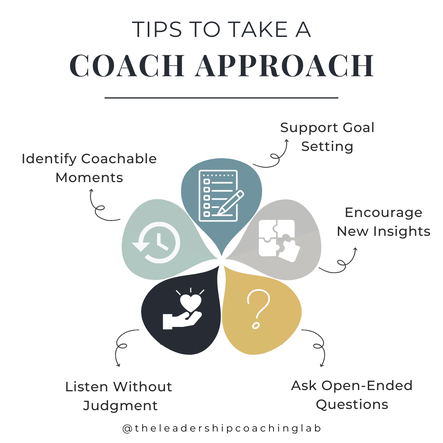 Much has been written about the increased mental health concerns facing Gen Z and Gen Alpha. In addition, as I talk to employers and educators, I often hear how many young people today lack the problem solving and critical thinking skills we saw in older generations at the same age. As we consider ways to support the health and growth of young people around us, we often overlook some of the best tools and opportunities at our disposal: fun and free play. Neil Postman wrote, “It is not conceivable that our culture will forget that it needs children; but it is halfway toward forgetting that children need childhood. Tim Elmore, in his book Marching Off the Map wrote that childhood as we have known it historically is disappearing, and that a strange paradox is emerging in young people as a result. We are witnessing the extinction of childlikeness and the extension of childishness. The reality is that free, unstructured play builds skills and maturity. When young people can play without an adult to dictate every action and guideline, and provide every resource, they have to start relying on their own abilities to problem solve, find solutions, resolve conflict, and exercise creativity. Furthermore, when they achieve something on their own, whether it is building a fort, designing a new game, writing a song for fun, or creating a small business idea, the resulting sense of fulfillment produces intrinsic motivation that helps them overcome apathy. When they encounter a complication and are able to overcome it, using their own skills and ideas, they gain confidence and resilience to face the next obstacle. Fun activities that have no predetermined purpose allow young people to just explore, problem solve, and test their skills and ideas. Free play can also help decrease stress and anxiety by giving them time to just think and be. One of the best gifts we can give young people around us this summer is to model what it looks like to disconnect from our devices and step away from our structured task list and just have fun. Invite them to join you, or give them opportunities to do so themselves. If this is a skill they have never developed, they may need some help getting started, but it will be a skill they can benefit from the rest of their lives. For more on free play, check out this article, or listen to the most recent episode of The Leading Tomorrow Podcast.
0 Comments
 The following is a guest contribution written by leadership coach Dr. Bethany Peters: Recent research shows us that coaching in the workplace has significant benefits: employees who are coached can experience increased productivity, enhanced clarity, a boost in confidence, and improved communication skills, among other benefits. But what is coaching, exactly? Sir John Whitmore, a leading contributor to the coaching profession, defined it as a process of “unlocking people’s potential to maximize their own performance.” Coaching is distinctly different from other professions such as mentoring, consulting, and therapy. Although all of these are valuable sources of support, coaching employs a more facilitative approach to:
What value does a coach approach have for supporting the next generation? More than ever, an engaging relationship with a manager is vitally important to retaining young adults. When a manager takes an intentional, personalized approach to promote growth and development in the workplace, that style of leadership is much more likely to generate loyalty and commitment from members of Generation Y and Z. The coach approach appeals to young adults with its focus on:
A coach approach is grounded in trust-filled relationships and characterized by a commitment to:
If you are interested in leveling up your coaching skills, and learning how to take a coach approach in your specific setting, consider doing it with a group of other leaders and influencers… Six Weeks to a Coach Approach is an interactive, group coaching program launching this September, facilitated by leadership coach Dr. Bethany Peters. Social Media: https://www.instagram.com/theleadershipcoachinglab/ https://www.linkedin.com/in/bethany-d-peters/  Self-awareness is critical for effective multigenerational teams and leadership. Without self-awareness, we may fail to understand how members of other generations are perceiving or relating to our words and actions. Researcher Dr. Tasha Eurich discusses two types of self-awareness. The first is internal self-awareness. This relates to how we see our “own values, passions, aspirations, fit with our environment, reactions (including thoughts, feelings, behaviors, strengths, and weaknesses), and impact on others.” Dr. Eurich and her team discovered that internal self-awareness is “associated with higher job and relationship satisfaction, personal and social control, and happiness; it is negatively related to anxiety, stress, and depression.” The second type of self-awareness identified by Dr. Eurich and her team is external self-awareness. This relates to understanding how other people view us, in terms of our values, passions, reactions and environment. Their research shows that people who know how others see them are more skilled at showing empathy and taking others’ perspectives. Bradberry and Greaves, in their book Emotional Intelligence 2.0, define self-awareness as the “ability to accurately perceive your own emotions in the moment and understand your tendencies across situations.” There are several ways to increase our self-awareness. The first is to reflect more. Take time to think about your words, actions, and decisions. Consider how others respond, or where you could have be more effective. While reflection is likely to reveal some areas where we need to change and grow, self-awareness is also about understanding how we are wired, what motivates and affects us. When we know these things, we can make decisions and choose opportunities that minimize our potential to respond poorly and maximize the positive impact of our strengths, gifts, and interests. A second step to increasing self-awareness is to take the time to understand ourselves better. Assessments, coaching, or journaling are a few tools that can help us with this. A third strategy to increasing self-awareness is actively requesting feedback and receiving it with gratitude and not defensiveness. There are many formal and informal ways to solicit feedback. One of my favorite growth strategies is to have reverse mentors who are older and younger than me. By requesting and graciously receiving their honest feedback on my behaviors, attitudes, and interactions, I can gain a deeper understanding of myself and how others perceive me. Bradberry and Greaves tell us that “self-awareness is a foundation skill; when you have it, self-awareness makes the other EQ skills much easier to use. As self-awareness increases, people’s satisfaction with life…skyrockets. Self-awareness is so important for job performance that 83 percent of people high in self-awareness are top performers.” Consider your own level of internal and external self-awareness. Where do you have the need to grow in your understanding of yourself and others? How can you engage someone older or younger than you as you seek to grow in your self-awareness?  The National Student Clearinghouse released their latest college enrollment numbers on October 15, 2020. They are showing that a month or so into the fall 2020 semester, undergraduate enrollment is running 4% below last year’s numbers. “Most strikingly, freshman students are by far the biggest decline of any group from last year, with a decrease of 16.1% nationally and a 22.7% drop at community colleges in particular. First-time students account for 69% of the total drop in undergraduate enrollment.” It is not surprising that many undergraduate students may be putting their college plans on hold amid uncertain times. This means a lot of students who might otherwise be in college are doing something else right now. I couldn’t help but wonder what this season looks like for those who are waiting to reengage their college plans. While mental health risks for college students were high prior to the pandemic, we are now seeing an increase in depression rates for college students since the beginning of the pandemic. It is critical for students today to have support and encouragement in this season as they make decisions that will allow them to thrive amid the uncertainty. If you know a college-aged student who has put their plans on hold, or who is reconsidering their plans, here are a few ways to encourage them:
 In this season, our relationships have adapted to a world of social distancing and virtual interactions. Whether we are spending more time with our kids as they homeschool or do virtual courses, or spending less time with students or employees who are learning and working from home, there are unique opportunities to encourage and support the young people in our life. One way we can do this is to identify and acknowledge how they are smart, the natural intelligence they have, and affirm and encourage them in developing their abilities. This is a generation that is incredibly individualistic and is growing up in a world that tells them identity is fluid. This can create uncertainty, confusion, and anxiety. This is further complicated as social media creates a tendency to compare ourselves to others. Young people today need confidence to understand themselves and grow in their abilities. We can help them. Dr. Kathy Koch, in her book The 8 Great Smarts, talks about the different types of intelligences we can watch for in the lives of the Gen Zers around us. She gives descriptions of how each type of intelligence thinks, responds, and learns. There are great suggestions for activities to do with young people based on their interests, and ideas for guiding them into a career field that fits who they are. The eight great smarts that she delineates are: · Word Smart · Logic Smart · Picture Smart · Music Smart · Body Smart · Nature Smart · People Smart · Self Smart I highly recommend Dr. Kathy’s book. As a parent who is Word Smart, it has given me so many great insights as I raise Picture Smart and Nature Smart kids. As a People Smart coach and educator, I have learned to better appreciate and relate to the Self Smart people I coach and teach. As you engage the Gen Zers in your life, I encourage you to pay close attention to the “smarts” they possess, encourage and guide them as they develop the unique intelligence they possess.  The following is a guest article written by Katy White. Katy serves as the director of Goer Experience with GoCorps, where she coaches Gen Z college graduates who are considering how to use their skills to serve globally. In my work with Generation Z students, I’ve become more and more convinced that Gen Z is poised to make a significant impact on the world. They are innovative thinkers with a desire to usher in change. Yet they face many challenges within themselves and their world. How do we as leaders and mentors help them grow into the world changers God has appointed them to be? Over the years, I’ve discovered a few best practices to help lead this emerging generation. One of the most important is to engage your students from a coaching mentality. Commonly, mentorship involves the mentor imparting information to the mentee. This is a “download” approach, which involves the mentor spending the majority of the time communicating and the mentee spending the majority of the time listening. However the coaching mentality flips this script. In a coaching relationship, the communicating primarily comes from the coachee. In a sense, this is an “upload” approach, allowing the student to process with their coach what is going on internally. Your role as the coach is to create the welcoming space for the coachee to share, guide the conversation to draw out thoughts and ideas, ask questions that lead to opportunities for reflection and realization, actively listen to what is being shared, and reflect back insights the coachee was able to discover and conclusions they were able to reach themselves through the conversation. Practically, as a mentor this should look like spending 30% of the time talking and 70% of the time listening. Why is this important? The desire to feel understood, I believe, is in all of our natures. Yet in particular, Gen Z has a deep desire to be seen and heard and is strongly motivated by individualization and personalization. When a student feels that you understand who they are, where they are coming from, and what is unique about them, you have earned the trust and authority to challenge, exhort, and encourage them. You are also then able to paint a picture of how God purposes to use them for His kingdom. How can you accomplish this? First, seek to understand their interests, skills, doubts, fears, dreams, desires, future plans, etc. Then, use reflective words - their language of how they are describing themselves - and connect it to Biblical principles and kingdom purposes. Learn to be a master at asking questions. Jesus was! Many times Jesus would even answer someone’s question by asking another question. Jesus asked questions to reveal the root of the issue, expose a heart condition, illustrate a kingdom concept, or create a relationship and communicate care. Do you need help becoming a master questioner? Think of questions as a branch. Start with an easier, straightforward question that then has related questions that branch off to reveal more breadth and depth to an answer. For example, an easy question to begin exploring what a student’s interests is “What is your major?” Branch questions include, “Why did you choose that major? Did you start with that major, or did you switch into it? Why did you switch? Have you enjoyed the degree program? Why or why not? What has been your favorite and least favorite class and why?” Another example of a starter question is “What has been challenging this week?” Branch questions include “Why was this challenging? Have you faced a similar challenge before? How did you respond? Are you happy with that response? How do you wish you could have responded? What can you do to help you respond in this way next time you face a challenge like this?” Become a curator of good questions and you will be able to empower this generation to understand more of who they were created to be, recognize and address their fears and challenges, listen the Holy Spirit, and take steps towards fulfilling God unique call on their lives. |
AuthorDr. Jolene Erlacher is a wife, mommy, author, speaker, college instructor and coffee drinker who is passionate about empowering the next generation of leaders for effective service! Archives
May 2024
Categories
All
|

 RSS Feed
RSS Feed